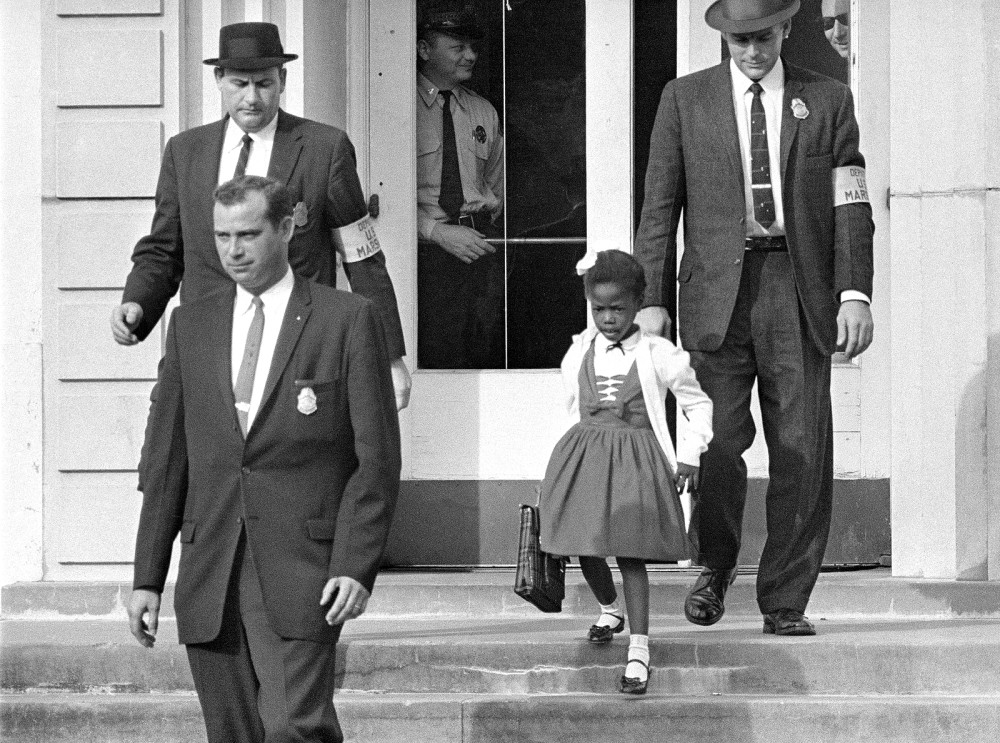When Ruby Bridges prayed for her enemies
In the face of mob violence, a six-year-old responded with love.

Fifty-six years have passed since six-year-old Ruby Bridges walked into William Frantz Elementary School in New Orleans. Ruby was black; the other students were white. Her walk into that school, surrounded by federal marshals (later immortalized in Norman Rockwell’s painting The Problem We All Live With), signaled a major development in desegregation. Before her first day of first grade had ended, parents had emptied the school of white children in a massive boycott. Ruby learned alone that year, taught by the one teacher willing to remain.
Huge crowds of protesters gathered daily outside the school to shout slurs and death threats at Ruby. Film clips from the day are hauntingly difficult to watch. Throngs of angry whites waved Confederate flags, and some even shoved before Ruby an open child’s casket with a black doll inside. These expressions of public hatred remind us how unrestrained fear can quickly spiral into mob mentality.
When psychiatrist Robert Coles was studying children in the desegregating South in the ’60s, he took a personal interest in Ruby. Her display of strength, stoicism, and bright cheer in the midst of a daily hell caught his attention and puzzled him. He began to meet with her every week.



